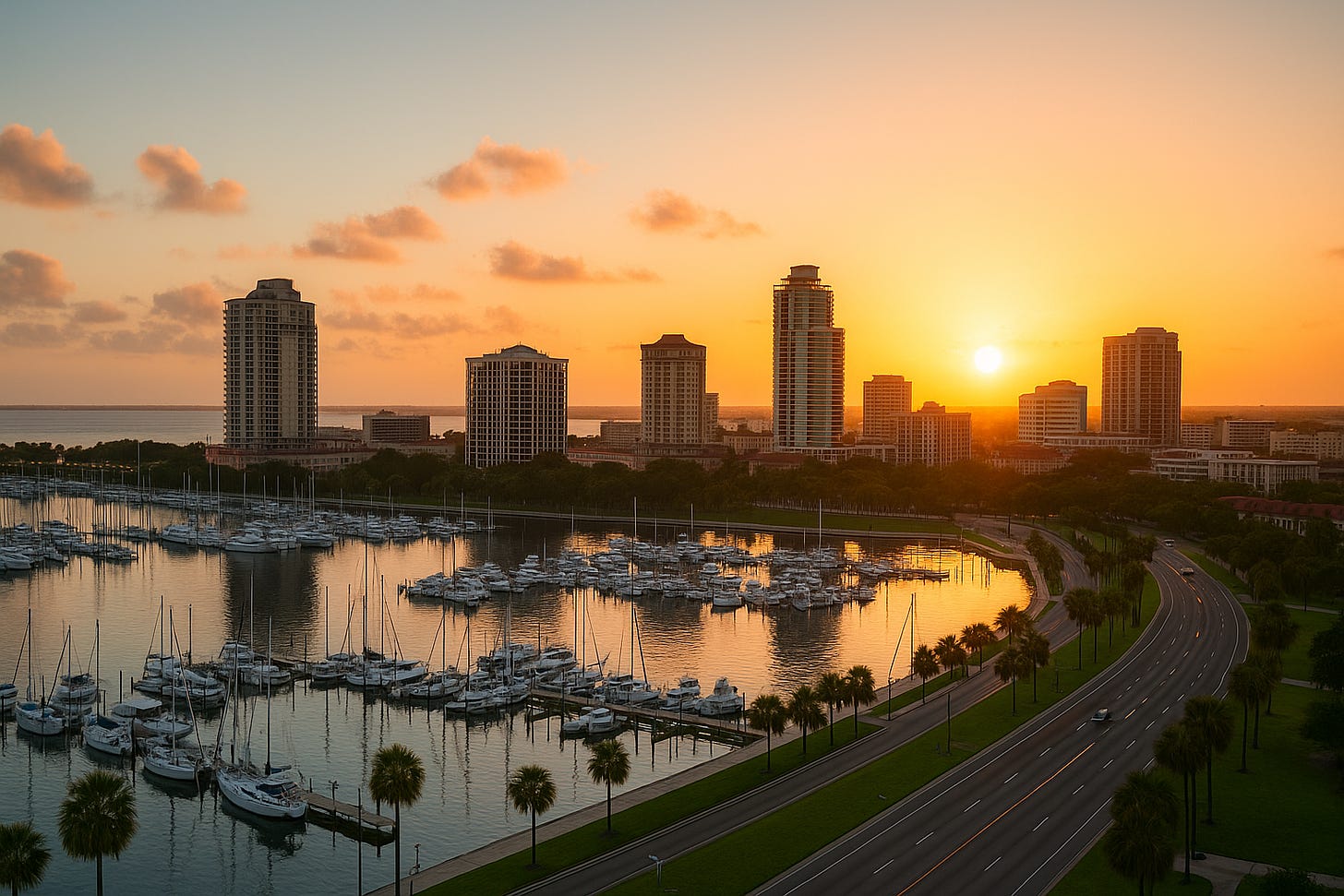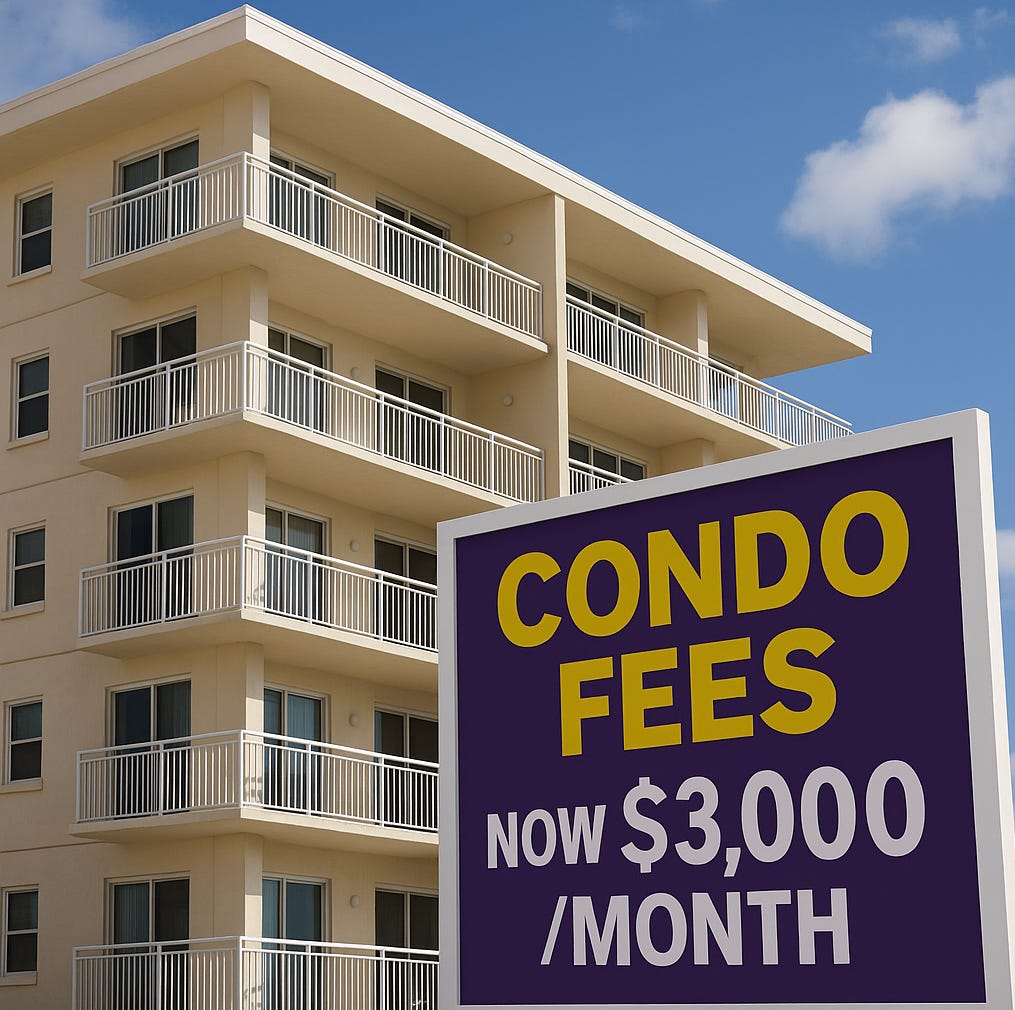The Great Second Home Sell-Off: Why Vacation Properties Are Flooding the Market
Why the Dream of a Second Home is Turning Into a Financial Nightmare
By Dennis Hendrickson
Across America’s favorite vacation spots, from Florida’s sunny beaches to the Arizona desert and up to the rocky coast of Maine, a wave of "For Sale" signs is going up. But these aren’t first-time sellers or accidental landlords. This time, it’s second-home owners, snowbirds, and out-of-state investors leading the charge.
So what’s really going on here? Why are people suddenly racing to offload their vacation homes? The short answer: it’s becoming too expensive to hold onto them, and the economics simply no longer work.
Florida: The HOA Nightmare and Investor Exodus
Nowhere is the pain more visible than in Florida. Condo owners across the state are seeing HOA fees soar as high as $3,000 to $4,000 per month in some buildings. This explosion in fees stems largely from new state laws passed after the tragic Surfside condo collapse in 2021. The laws require older condo buildings to finally catch up on decades of deferred maintenance, and owners are footing the bill.
The result is a flood of listings. In St. Petersburg alone, zip code 33706, inventory has reached the highest levels in a decade, with 410 homes and condos currently on the market. Condo prices have already dropped 7.7 percent year-over-year, and in some buildings, values are down as much as 50 percent from peak prices.
Even worse, many of these units aren’t renting. One local example is a condo listed for $270,000 with monthly costs including HOA and mortgage of $2,500. Yet similar units can’t even find renters at $2,000 a month. Why would anyone buy what they can’t rent or afford to hold?
The Canadian Snowbird Retreat
Florida and Arizona are also seeing an unusual sell-off from one of their largest buyer groups, Canadian snowbirds. Recent reporting from Reuters highlights that many Canadians who typically spend the winter months in the U.S. are cashing out. Some brokers report as much as a sixfold increase in listings from Canadian owners compared to normal activity.
The reasons include rising costs, unfavorable currency exchange rates, political uncertainties, and tighter budgets at home.
Maine and Beyond: The Trend Goes National
It’s not just a Florida story. Maine, known as "Vacationland," is also seeing second-home owners dump properties into the market. In southern Maine, listings are up 27 percent year-over-year as owners look to cash in on recent appreciation while they still can.
In the UK, tax hikes on second homes are driving similar sell-offs in coastal towns like Tenby, Wales, where house prices are now plunging as owners rush to beat new council tax penalties on holiday homes.
Back in the U.S., condo markets in Austin, Atlanta, and Phoenix are also feeling the squeeze. A record wave of new apartment construction is creating competition that older condos simply can’t keep up with, both for renters and buyers.
Foreclosures and FHA: More Inventory Coming
Adding fuel to the fire, the Trump administration recently announced plans to end the foreclosure backlog on FHA loans. Nearly 400,000 seriously delinquent mortgages have been protected by loss mitigation programs that prevented foreclosure action. Starting September 2025, those protections will end.
Markets heavy with FHA borrowers, including Las Vegas, Phoenix, Orlando, Riverside, Tampa, and Detroit, are likely to see another wave of inventory hit the market as these distressed properties are finally forced into foreclosure or sale.
What This Means for the Housing Market
The sell-off of second homes and investment properties isn’t just a short-term blip. It’s a signal that the economics of vacation home ownership have fundamentally shifted. Rising insurance premiums, natural disaster risks, expensive maintenance, and regulatory changes have made holding these properties much harder to justify.
Combine that with declining school enrollment and weak family formation in places like Florida, where schools in Pinellas County are laying off teachers because there simply aren’t enough children, and you start to see the deeper demographic issues that could suppress housing demand for years to come.
Is This the Start of a Bigger Correction?
While much of the mainstream media continues to push the narrative of a housing shortage, the data tells a different story, especially in these investor-heavy, second-home markets.
Could this be the early phase of a larger housing correction? It looks likely. Especially for those who bought at peak prices during the pandemic frenzy, the road ahead may mean either holding at a loss or cutting bait while there are still buyers.
For those on the sidelines waiting for affordability to return, the next few years might finally bring opportunity, but patience will be key.
✅ If you found this helpful, be sure to subscribe to stay updated on real estate trends, market insights, and economic shifts that affect investors and homeowners alike.




